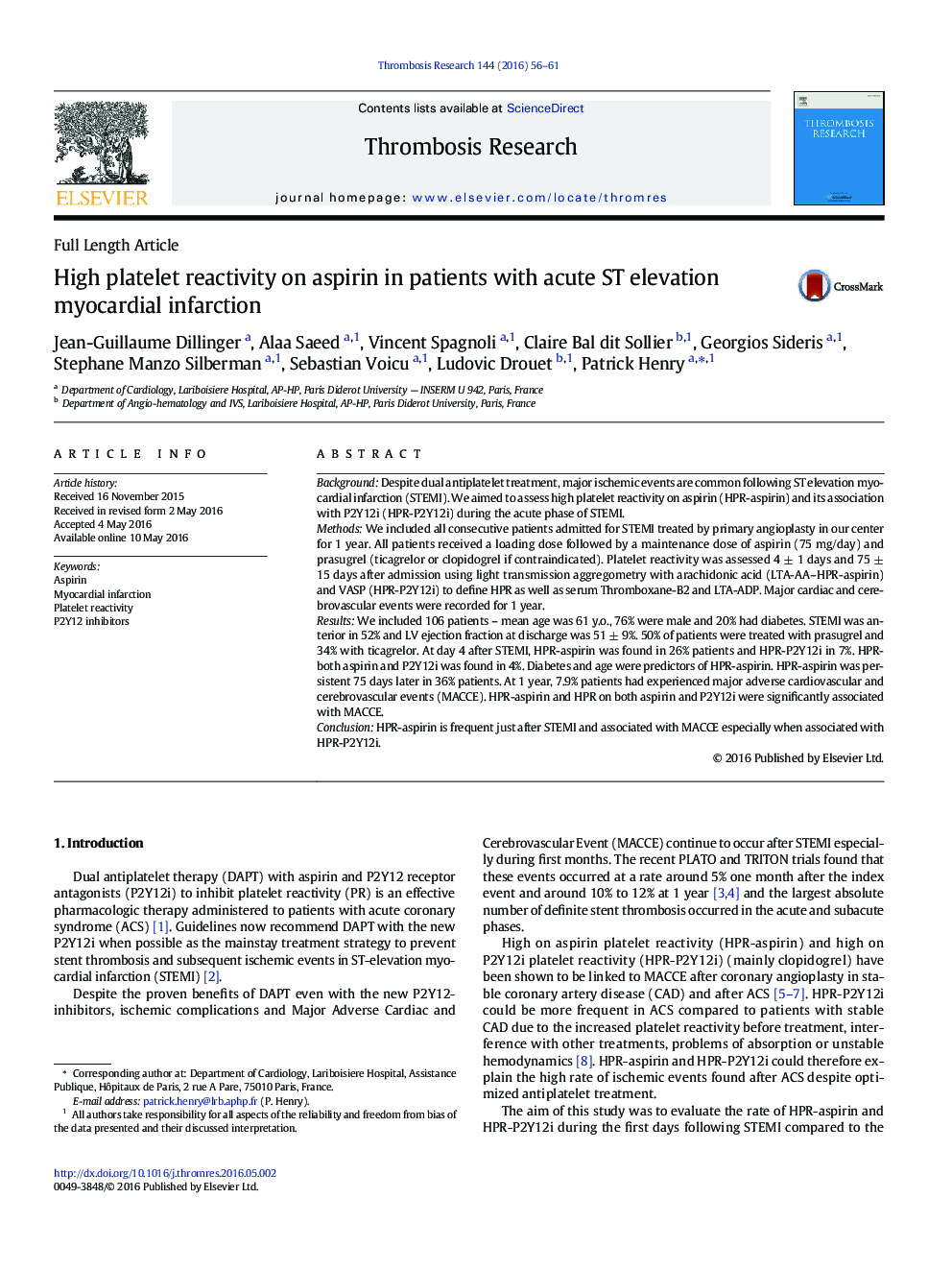| Article ID | Journal | Published Year | Pages | File Type |
|---|---|---|---|---|
| 3026826 | Thrombosis Research | 2016 | 6 Pages |
What is known about this topic?•Acute cardiovascular events including stent thrombosis are frequent after acute myocardial infarction•Drug interaction, problems of absorption or unstable hemodynamics could lead to a decrease in effectiveness of antithrombotic therapy•High platelet reactivity on aspirin and P2Y12i have never been studied in acute myocardial infarctionWhat does this paper add?•HPR-aspirin is frequent at the acute phase of myocardial infarction (23%)•HPR-aspirin alone and HPR on both aspirin and P2Y12i are significantly associated with MACCE•The occurrence of HPR-aspirin decreases over time following the acute event
BackgroundDespite dual antiplatelet treatment, major ischemic events are common following ST elevation myocardial infarction (STEMI). We aimed to assess high platelet reactivity on aspirin (HPR-aspirin) and its association with P2Y12i (HPR-P2Y12i) during the acute phase of STEMI.MethodsWe included all consecutive patients admitted for STEMI treated by primary angioplasty in our center for 1 year. All patients received a loading dose followed by a maintenance dose of aspirin (75 mg/day) and prasugrel (ticagrelor or clopidogrel if contraindicated). Platelet reactivity was assessed 4 ± 1 days and 75 ± 15 days after admission using light transmission aggregometry with arachidonic acid (LTA-AA–HPR-aspirin) and VASP (HPR-P2Y12i) to define HPR as well as serum Thromboxane-B2 and LTA-ADP. Major cardiac and cerebrovascular events were recorded for 1 year.ResultsWe included 106 patients – mean age was 61 y.o., 76% were male and 20% had diabetes. STEMI was anterior in 52% and LV ejection fraction at discharge was 51 ± 9%. 50% of patients were treated with prasugrel and 34% with ticagrelor. At day 4 after STEMI, HPR-aspirin was found in 26% patients and HPR-P2Y12i in 7%. HPR- both aspirin and P2Y12i was found in 4%. Diabetes and age were predictors of HPR-aspirin. HPR-aspirin was persistent 75 days later in 36% patients. At 1 year, 7.9% patients had experienced major adverse cardiovascular and cerebrovascular events (MACCE). HPR-aspirin and HPR on both aspirin and P2Y12i were significantly associated with MACCE.ConclusionHPR-aspirin is frequent just after STEMI and associated with MACCE especially when associated with HPR-P2Y12i.
